Capacitor resistor filters are extremely popular as well for signal amplification and regulation by allowing the passage of desired frequencies while effectively removing unwanted noise because of the special properties of capacitors and resistors which complement each other in perfect unison.
Capacitors play a role in filtering tasks as they can store and discharge electrical energy effectively. They act as a form of agent by permitting alternating current (AC ) signals to flow through while hindering direct current (DC). This function is vital in scenarios, such as power sources where maintaining a voltage level is of utmost importance.
Metalized film capacitors from companies like SMILER come with benefits, like minimal equivalent series resistance (ESR) handling of ripple current and self-repairing abilities that make them dependable for filtration duties. Furthermore, capacitors are adjustable to fit needs like high voltage or high frequency uses, ensuring top-notch functionality in various systems.
Resistors have a role in managing the current flow in the filter circuit by adjusting its cutoff frequency to regulate the passage of signals and suppress unwanted noise effectively, through heat dissipation for stable circuit performance.
In low-pass filters like those found in electronics circuits or audio systems, resistors and capacitors team up to allow only low-frequency signals to go through while blocking out the frequencies effectively, depending directly upon the precise manufacturing of resistors for accuracy and efficiency in such filters.
Pass filters are frequently used as capacitor resistor filters, making use of the unique characteristics of capacitors and resistors to effectively filter signals.
In systems, low pass filters are handy as they let lower frequency signals pass through while reducing higher frequencies to ensure clear sound by getting rid of high pitched noise. The efficiency of the pass filter comes from its simple structure involving an RC network system. The resistor helps in managing the charging and discharging process of the capacitor, which has a direct impact on the responsiveness of the filter based on how rapidly it responds to changes in the input signal's frequency.
In an RC pass filter circuit setup like this. The resistor is in line with the input signal and the capacitor is set beside the output load in a parallel arrangement. When a high-frequency signal comes across this setup here, the capacitor acts as a road to the ground by offering low impedance to block it from reaching the output. Conversely, low-frequency signals encounter resistance from the capacitor, but can smoothly pass through the resistor to get where they need to go.
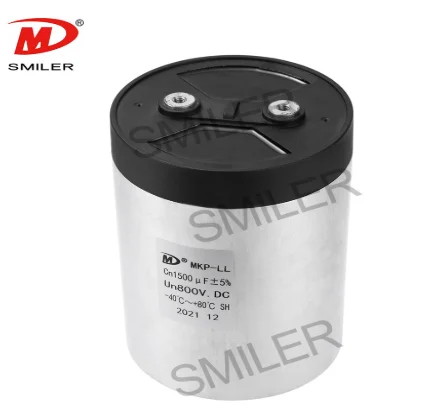 SMILER’s metallic film capacitors perform well in these setups because of their extended lifespan and impressive capacity to withstand high voltage levels, guaranteeing smooth operation even in challenging environments.
SMILER’s metallic film capacitors perform well in these setups because of their extended lifespan and impressive capacity to withstand high voltage levels, guaranteeing smooth operation even in challenging environments.
For 15 years, SMILER has been dedicated to renewable energy. Their DC Link MKP-LL capacitors have been specially crafted for use in DC Link circuits. Are capable of replacing the commonly used electrolytic capacitors. With advantages like ESR and the ability to heal themselves when needed these products are highly reliable and efficient. Also worth noting is SMILER's dedication to providing solutions that cater specifically to each client's unique requirements.
Capacitor resistor filters play a role in enhancing signal quality by reducing noise and undesirable frequencies effectively. These filters work by utilizing the characteristics of capacitors and resistors to improve electrical signals and allow only the desired frequencies to transmit through seamlessly.
Capacitors are essential in this process because they can store and release energy effectively. They serve as a block for direct current (DC) while enabling the transmission of alternating current (AC), which is especially valuable in power supply scenarios, requiring voltage stability. Metalized film capacitors made by SMILER perform exceptionally well in this function, thanks to their low equivalent series resistance (ESR), strong ability to handle ripple currents and their self-repair capabilities, these characteristics guarantee that the capacitor can operate effectively under circumstances without sacrificing its performance capabilities.
Capacitor resistor filters help in increasing energy efficiency and the stability of circuits by regulating signal frequencies and eliminating noise interferences, hence leading to wasteful energy loss as a result of high-frequency interferences. This not only enhances the efficiency of electronic devices but also their longevity.
The stability offered by capacitor resistor filters is utilized in renewable energy like solar and wind power systems inverters that require stable operation under changing input signals. DC link capacitors are used in photovoltaic (PV) systems to stabilize the DC bus voltage between rectifier and inverter stages. They suppress voltage oscillations, absorb pulsating high-amplitude currents and protect against transient overvoltages prone to damaging high-value devices like IGBTs. In the process of stabilizing the voltage, they enhance the reliability and efficiency of PV inverters by ensuring safe power conversion and integration into the grid. SMILER's Capacitor manufactures specialized MKP-L series capacitors used in these applications with high reliability and extended periods of operation lifetimes.
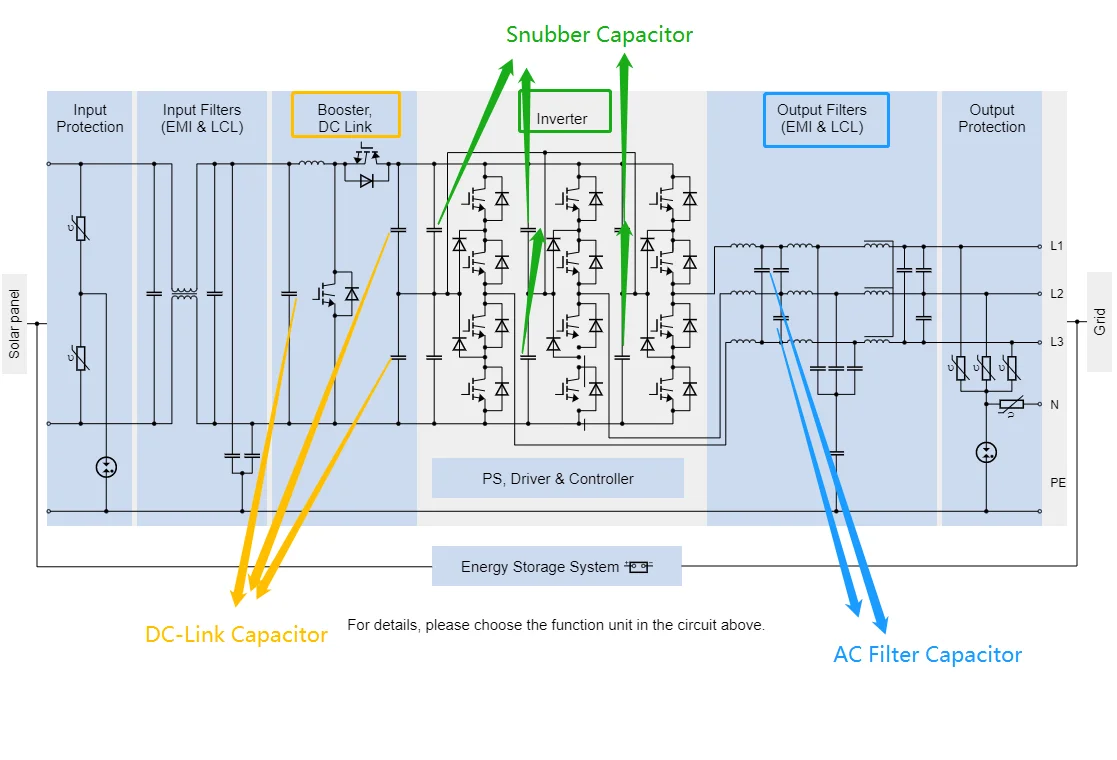
In addition, resistor capacitor filters also take a key role in the transportation system of cars (e.g., EVs or hybrid electric vehicles: HEVs), voltage stabilizing and avoiding interference (EMI) so that motor drive systems and other critical components will run efficiently without any disruptions.
Capacitor resistor filters play the role of boosting energy efficiency and stability in various industries, including consumer electronics and industrial settings, by delivering solid solutions to manage electrical signals effectively.
Capacitor resistor filters heavily depend upon the accuracy of their capacitors to guarantee signal enhancement. Capacitors are employed to regulate the flow of electrical signals and are especially important in distinguishing between desired frequencies and interference. SMILER metalized film capacitors are specially designed to provide function at low equivalent series resistance and superior ability to handle ripple currents. These properties enable them to negotiate challenging environments while sustaining optimum performance levels.
Resistors are components in capacitor resistor filters as they regulate the current flow and determine the filter cut-off frequency success rate determined by superior resistors, that ensure consistent performance and reliability for long durations of time. SMILER’s state-of-the-art filtering system resistors are intricately designed to work harmoniously with their precision capacitors, resulting in improved overall functionality.
These resistors are built to last and can handle continuous use in different environmental settings without any issues. Whether they're used in pass filters or other setups, these parts stay reliable and effective deliver consistent outcomes even when faced with high pressure situations.
A: RC circuits can be used to filter a signal by blocking certain frequencies and passing others. The two most common RC filters are the high-pass filters and low-pass filters; band-pass filters and band-stop filters usually require RLC filters, though crude ones can be made with RC filters.
A: They are also known as passive filters as they do not require any external power supply in order to work. Passive filters are typically constructed using resistors, capacitors and inductors.
A: Filter capacitor is a capacitor used to filter out an individual frequency or a band of frequencies from an electrical circuit. By and large, a capacitor sifts through the signs that have a low recurrence. These signals are also known as DC signals because their frequency value is close to 0 Hz.
A: Please place the RC filter closest to the MCU input for optimal performance.
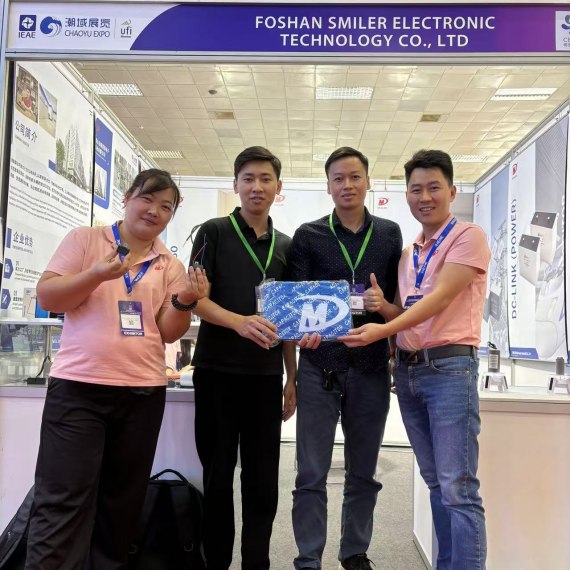
2024 VIETNAM INTERNATIONAL ELECTRONICS & SMART APPLIANCES EXPO
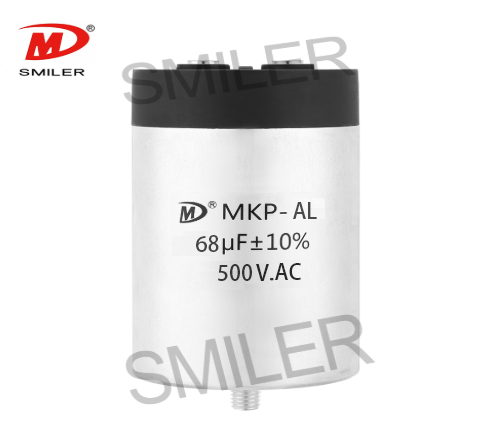
Exploring How AC Capacitors and DC Capacitors Function Differently
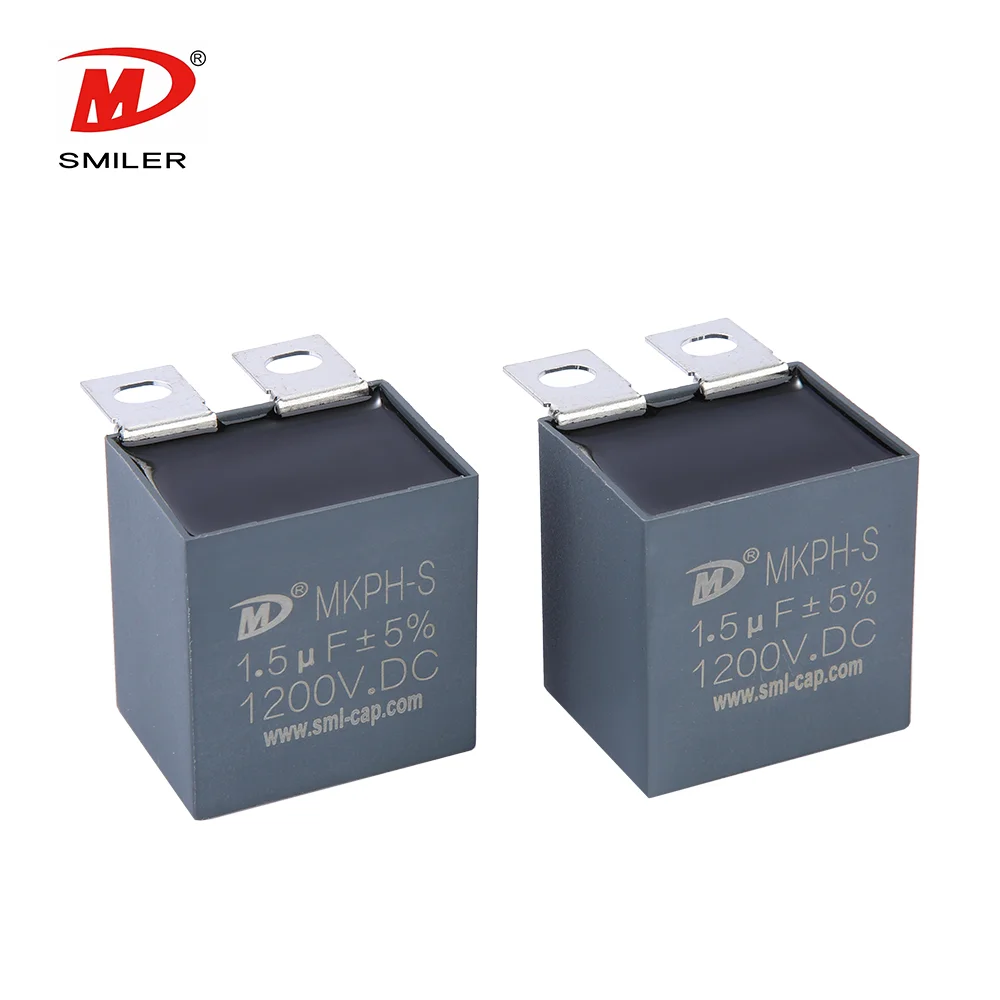
Understanding Snubber Capacitor: RC vs. RCD Snubber Differences
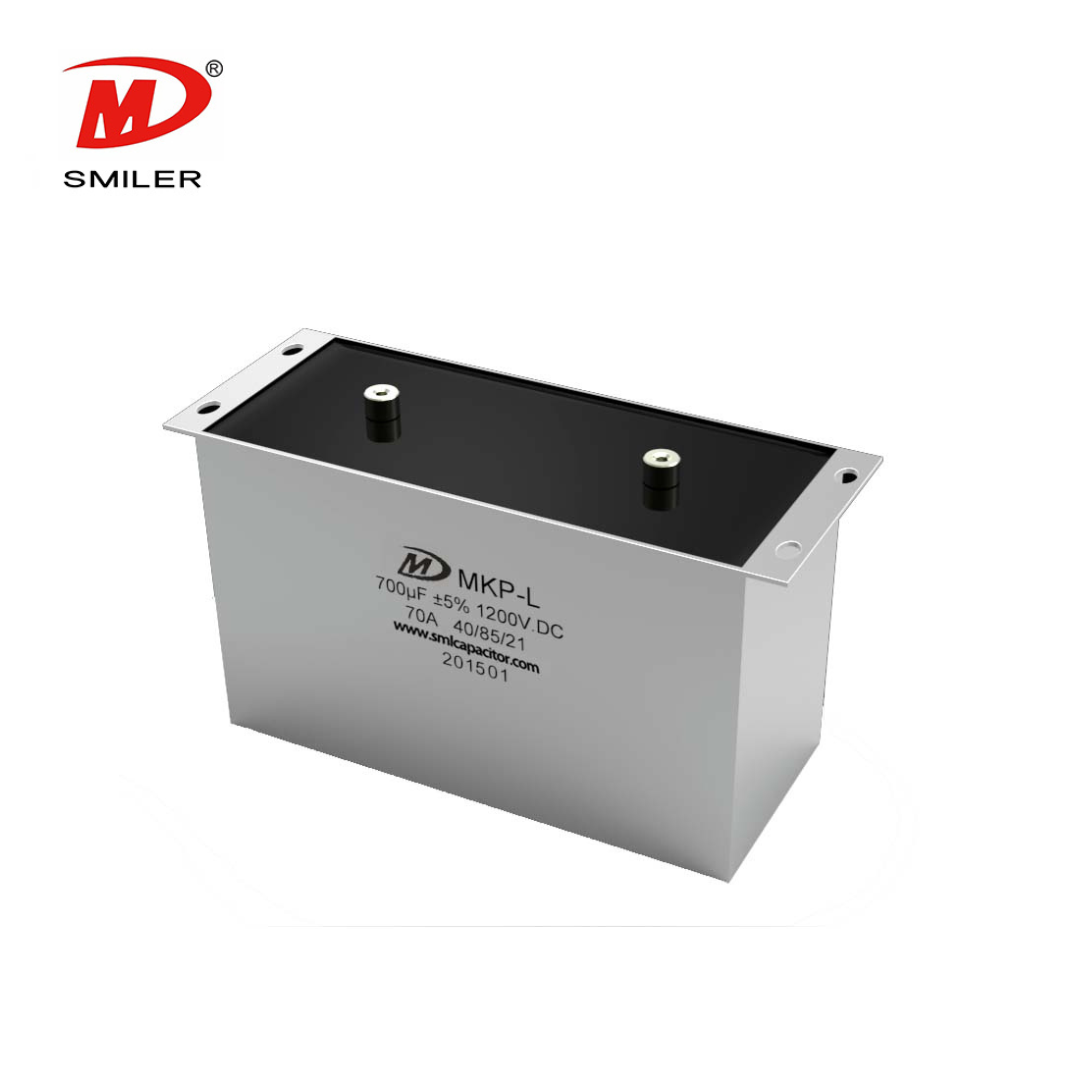
Understanding DC Capacitance to Prevent Converter Oscillations
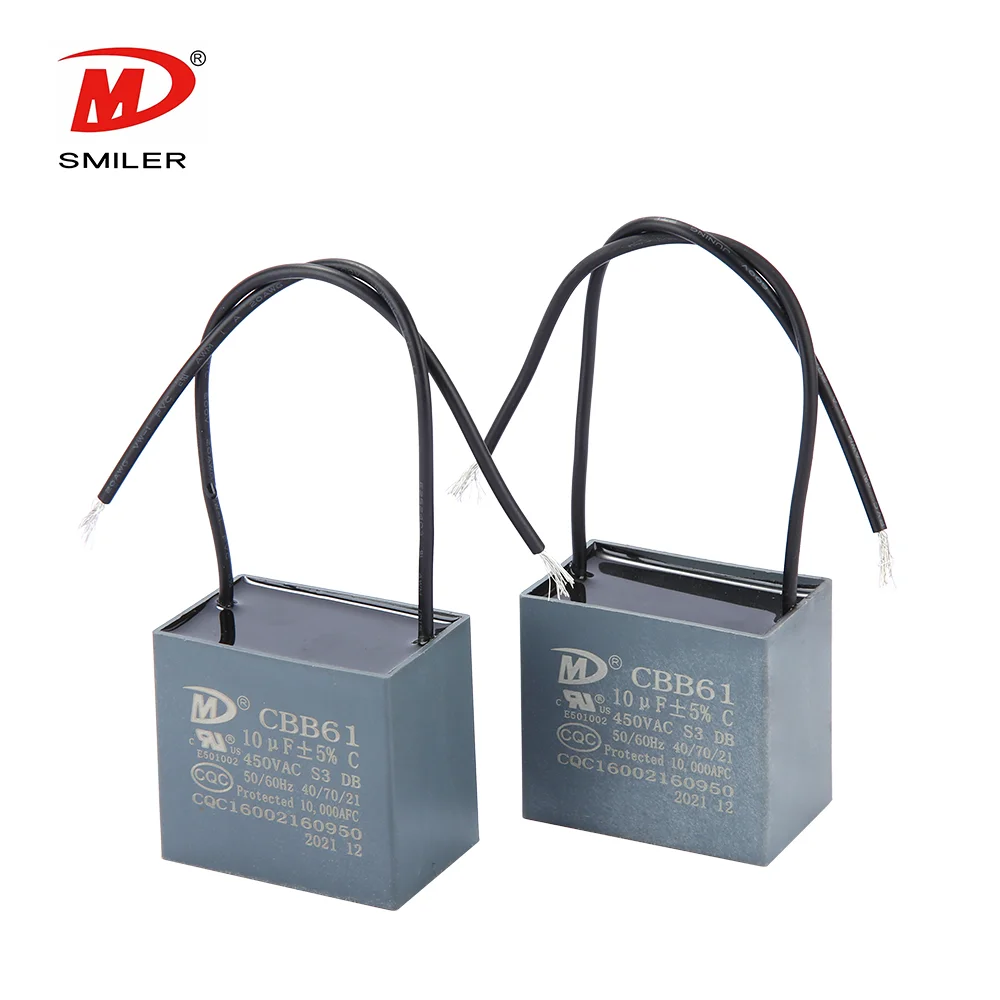
What Does a CBB61 Fan Capacitor Do? Exploring the Role of CBB61 Fan Capacitors